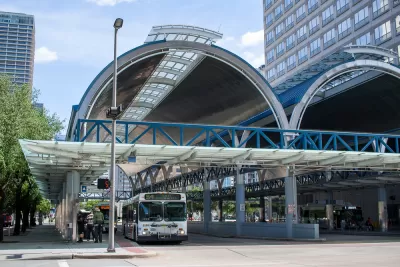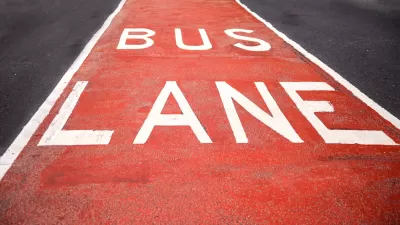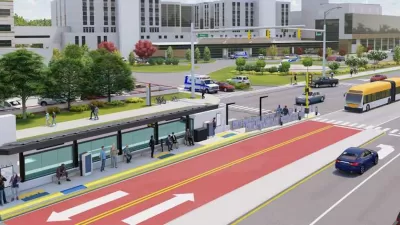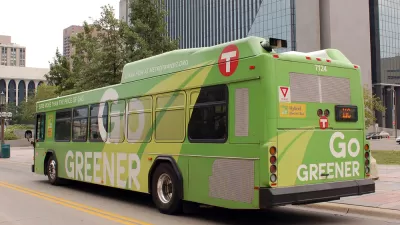The Houston Chronicle editorial board comes out in support of a proposed 25-mile bus rapid transit line, arguing it would provide essential service to transit-dependent residents.

The Houston Chronicle editorial board writes in support of the proposed University Line, which, at 25 miles, would be one of the nation’s longest bus rapid transit (BRT) lines. “A future where Houstonians won’t have to be tethered to a car for their daily commute isn’t just some urbanist fantasy; it’s a necessity for the city to stay competitive with its big-city rivals,” the board writes.
The University Line “connects several of Houston’s biggest downtowns. It connects Metro’s existing investments, making the system work better as a whole. And, finally, it will improve the lives of Houstonians who either leave their cars at home or must rely on transit.”
The project has its critics, who say the line won’t get enough ridership to justify the cost of construction, will disrupt traffic, bring gentrification, and negatively impact local businesses. While the board acknowledges that “Some of these concerns are reasonable,” they insist that the connectivity that the University Line would provide would open up public transit opportunities for many more Houstonians.
Additionally, “Higher and higher ridership isn’t the only goal. The people who consistently use Metro — lower-income commuters who can’t necessarily afford a car or have the ability to drive one — remain reliant on it.” And at $1.5 billion, the cost of the University Line pales in comparison to the $12.5 billion planned for highway expansion.
FULL STORY: Editorial: Metro’s University Line will give Houston transit badly needed reach.

Trump Administration Could Effectively End Housing Voucher Program
Federal officials are eyeing major cuts to the Section 8 program that helps millions of low-income households pay rent.

Planetizen Federal Action Tracker
A weekly monitor of how Trump’s orders and actions are impacting planners and planning in America.

Ken Jennings Launches Transit Web Series
The Jeopardy champ wants you to ride public transit.

Crime Continues to Drop on Philly, San Francisco Transit Systems
SEPTA and BART both saw significant declines in violent crime in the first quarter of 2025.

How South LA Green Spaces Power Community Health and Hope
Green spaces like South L.A. Wetlands Park are helping South Los Angeles residents promote healthy lifestyles, build community, and advocate for improvements that reflect local needs in historically underserved neighborhoods.

Sacramento Plans ‘Quick-Build’ Road Safety Projects
The city wants to accelerate small-scale safety improvements that use low-cost equipment to make an impact at dangerous intersections.
Urban Design for Planners 1: Software Tools
This six-course series explores essential urban design concepts using open source software and equips planners with the tools they need to participate fully in the urban design process.
Planning for Universal Design
Learn the tools for implementing Universal Design in planning regulations.
Heyer Gruel & Associates PA
Ada County Highway District
Institute for Housing and Urban Development Studies (IHS)
City of Grandview
Harvard GSD Executive Education
Toledo-Lucas County Plan Commissions
Salt Lake City
NYU Wagner Graduate School of Public Service





























